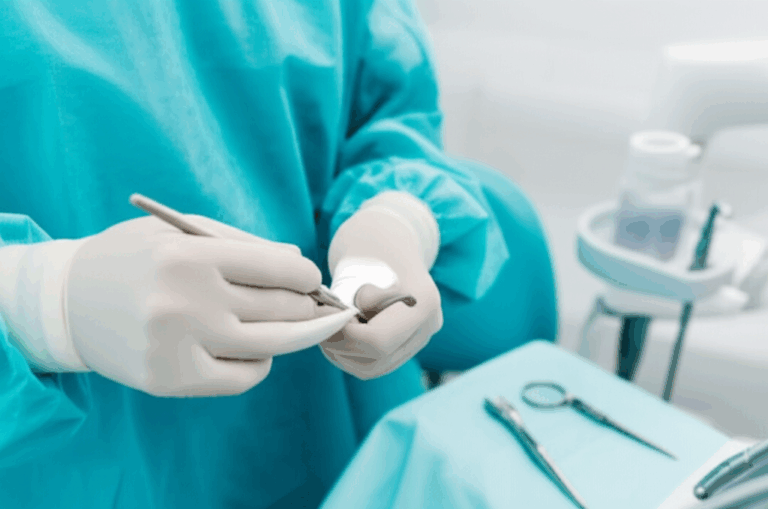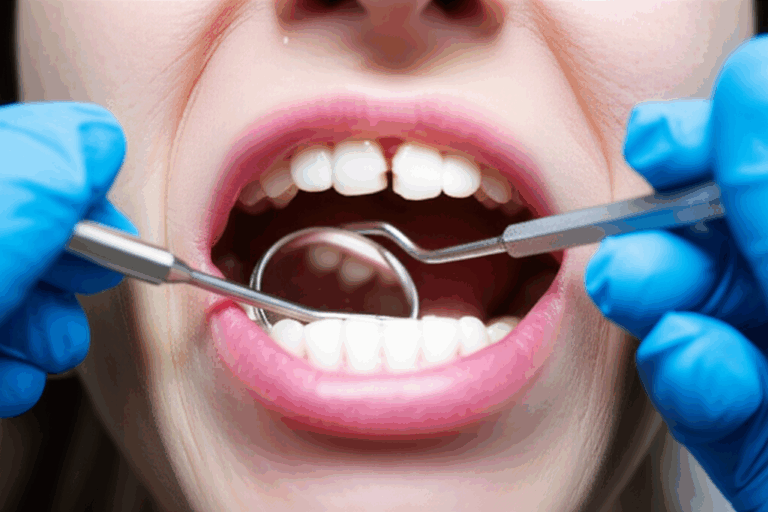
What Is the Definition of a Dentist?
Understanding the Role of Your Oral Health Specialist
Have you ever wondered, “What exactly does a dentist do—and why is seeing one so important?” Maybe you just noticed a bad toothache, or maybe you want to look after your smile but don’t know where to start. Don’t worry, you’re not the only one. Knowing what a dentist really is is the first step toward feeling more at ease about your oral health and making smart choices.
Let’s get into what makes a dentist much more than just a “tooth doctor,” and why they’re your important partner in staying healthy for life.
In This Article
- What Is a Dentist? (The Simple Definition)
- The Many Jobs Dentists Do for Your Mouth
- Basic Responsibilities and What They Can Do
- Types of Dentists: Who Does What?
- How Does Someone Become a Dentist?
- Why Dentists Matter for Your Overall Health
- Common Questions About Dentistry, Answered
- Takeaway: Easy Steps for a Healthier Smile
What Is a Dentist? (The Simple Definition)
Starting with the basics: A dentist is a licensed health worker who diagnoses, treats, and helps stop problems and diseases that affect your mouth, teeth, gums, and jaw.
But here’s something more—dentists aren’t just there to treat toothaches or fill cavities. Think of them like detectives for your mouth, teachers, or even builders. They keep your mouth healthy and pain-free, sure—but their real goal is even bigger. They help stop problems before they start and look out for the health of your whole body, not just your teeth.
Easy definition: The American Dental Association (ADA) says a dentist is a “main provider for oral health and the leader of the dental team.” This means they’re the first person to talk to about caring for your mouth, from simple cleanings to more tricky treatments.
The Mouth-Body Connection
Your mouth isn’t separate from the rest of you—it’s the entryway to your body. Infections, swelling, and diseases here can cause problems for your heart, blood sugar, and more. That’s why dentists play such an important role in your total health.
The Many Jobs Dentists Do for Your Mouth
So, what do dentists really do every day? There’s a lot more to it than just poking at teeth with tiny mirrors. A dentist’s work is wide and touches on nearly every part of helping you stay healthy.
Here’s how a dentist helps:
- Doing regular checkups and cleanings to catch problems early.
- Filling cavities and fixing broken teeth so you can use them as usual.
- Teaching you (and your kids!) the right way to brush and floss.
- Treating gum problems, which if ignored can lead to tooth loss and other bigger health issues.
- Fitting you for crowns, bridges, or dentures so you can chew, talk, and smile with ease.
- Taking dental X-rays to find hidden issues.
- Looking for dangerous problems like mouth cancer.
- Working with dental hygienists, assistants, and sometimes, a range of experts.
Dentists don’t just drill and fill—they guide, teach, and stand by your side for lifelong mouth health.
Key Responsibilities and What They Can Do
Let’s open up what makes up a dentist’s day (and why it matters for you).
1. Finding Problems: Spotting What’s Wrong
- Full Checkups: During a visit, your dentist checks your teeth, gums, tongue, and jaw for warning signs. They’re looking for cavities, gum trouble, bite problems, or even things like teeth grinding.
- X-rays: These pictures show issues hiding where you can’t see—like cavities between teeth or problems with the roots.
- Oral Cancer Checks: Simple checks that could save your life, catching problems you can’t see or feel.
- Other Clues: Sometimes, your mouth shows signs of things like not getting enough vitamins or health problems in other parts of your body.
2. Treating Problems: Fixing Big and Small Issues
- Fillings and Repairs: Fixing spots where decay (cavities) has made a hole in your tooth.
- Root Canals: Getting rid of infection from inside a tooth and saving it from being pulled.
- Crowns and Bridges: Putting a cap over damaged teeth or replacing missing ones so you can eat and speak as usual.
- Simple and Tough Surgeries: From pulling a painful wisdom tooth to fixing hurt jaw bones.
- Gum Treatments: Treating swollen gums and more serious bone problems around teeth.
- Relieving Pain: Whether it’s sensitivity, a sore, or jaw trouble, your dentist can help you feel better—and keep pain from coming back.
3. Prevention: Stopping Trouble Before it Starts
- Professional Cleanings: Getting rid of hard, crusty stuff (plaque and tartar) your toothbrush can’t always handle.
- Fluoride and Shieldings: Helping protect teeth from cavities, especially for kids—but it helps adults too.
- Teaching Care at Home: Showing you how to brush, floss, and look after your teeth every day.
- Advice on Food and Habits: Telling you which foods and habits are good or bad for your teeth.
4. Teaching Patients
Dentists are big on making sure you know how to care for your teeth on your own. Expect your dentist to answer your questions, give you tips, and explain why they recommend something.
5. Sending You to the Right Specialist
Dentists don’t have to do every possible treatment. When something’s tricky (for example, braces, special gum surgery, or dental implants), they’ll send you to the right expert.
Curious about how crowns, bridges, or other dental fixes are made? Learn more about a digital dental lab and how they help dentists restore your smile.
Types of Dentists: Who Does What?
Dentistry isn’t “one size fits all.” Just like in regular medicine, there are general and special dentists. Here’s what you should know:
General Dentist
Your general dentist is like a family doctor for your mouth. They do most routine care—like checkups, cleanings, fillings, and some repairs. They’re your first stop when you need help with your mouth. If your problem is outside what they usually do, they’ll send you to a specialist.
Dental Specialists
- Orthodontist: Straightens teeth and fixes bite problems with braces, clear aligners, or other devices. If you picture metal braces when you think “orthodontist,” that’s about right—but there are clear options these days too.
- Endodontist: Does special work inside your tooth, like root canals.
- Periodontist: Cares for your gums and the bone that holds your teeth. They treat serious gum disease or put in dental implants.
- Prosthodontist: Replaces missing teeth with crowns, bridges, dentures, or implants—almost like building your new smile.
- Oral and Maxillofacial Surgeon: Handles big mouth surgeries, including tough tooth extractions, facial injuries, and more.
- Pediatric Dentist: Cares for kids and teenagers, using special methods and a kid-friendly approach.
- Public Health Dentist: Works in communities, planning programs and ideas to help more people get good mouth care.
- Oral Pathologist: Finds and studies diseases in the mouth, often helping doctors with hard-to-figure-out cases.
Want to know how crowns or veneers are made? Take a look at how a dental ceramics lab helps create natural-looking smiles.
How Does Someone Become a Dentist?
Becoming a dentist isn’t easy. It takes lots of learning and practice.
The School Path
- Here, students learn about tooth anatomy, dental materials, medicines, and caring for patients.
Quick Fact: In the U.S., about 153,600 dentists work each day to protect people’s smiles, says the Bureau of Labor Statistics.
Why Dentists Matter for Your Overall Health
Dentists don’t just care about your teeth. Good mouth health is tied to almost every part of your body. Here’s how:
Pain Prevention and Help
Toothaches, jaw pain, and sore gums can ruin your day. Dentists don’t just treat these problems—they help stop them, so you can eat, talk, laugh, and live comfortably.
Keeping Things Working
Think about trying to eat your favorite food…if every bite hurt. Or not being able to say words clearly. Dentists help you chew, talk, and even breathe easily!
Helping You Look Good
Let’s be honest: a happy, healthy smile makes you feel better about yourself. Modern dentists do things like whitening or bonding to help you feel proud of your teeth.
Total Body Health
Your mouth gives clues about your health:
- Gum trouble is linked to a higher risk of heart disease, diabetes problems, and pregnancy issues.
- Long-lasting mouth infections make your body weaker.
- Regular dentist visits can spot major problems—like mouth cancer or vitamin shortages—early.
Helping the Community
Dentists don’t just help one person at a time. They work in groups to set up programs that stop tooth decay in kids, share information, and fight for better care for everyone.
Common Questions About Dentistry, Answered
What Problems Do Dentists Treat?
Dentists treat:
- Cavities (tooth decay)
- Gum troubles (swollen or bleeding gums)
- Sensitive teeth
- Broken, chipped, or missing teeth
- Teeth that don’t align (bite problems)
- Mouth infections and sores
- Mouth cancer and other serious issues
- Bad breath
- Hurts from injuries
Is There a Difference Between a Dentist and a Dental Hygienist?
Yes! Dental hygienists mostly clean your teeth, take X-rays, and show you how to care for your mouth. Dentists, though, can find and treat a bigger list of problems and do things like fillings, extractions, and more.
How Often Should I Visit the Dentist?
Most people do best with a checkup every six months—but your schedule might be different. Things like gum health, cavity risk, and other health issues can mean you need to come more (or less) often. Ask your dentist for advice.
What Can I Do Between Visits to Keep My Mouth Healthy?
- Brush your teeth at least twice a day with toothpaste that has fluoride.
- Floss once every day.
- Eat balanced meals—try not to snack on sugary foods or drinks.
- Don’t use tobacco.
- Wear a special mouthguard if you grind your teeth. (You can read more about these at a night guard dental lab.)
Takeaway: Easy Steps for a Healthier Smile
Let’s sum it all up! Dentists are:
- Licensed health workers for your teeth and mouth.
- Skilled at spotting and fixing many different issues.
- Focused on keeping trouble away, teaching you about care, and keeping you healthy.
- Your helpers for lifelong well-being—not just “fixers of bad teeth.”
What can you do for your smile today?
- Book regular checkups.
- Take care of your teeth the right way at home.
- Fix mouth problems early—don’t wait until you can’t stand the pain!
- Ask questions and work with your dentist for the best results.
- Pick someone who makes you feel relaxed and cared for.
Remember, a healthy mouth is the doorway to a healthy you. Don’t be nervous—ask your dentist anything, keep learning, and take charge of your oral health. You can do it!
Trustworthy Sources for More Learning
To learn more, check out:
- American Dental Association (ADA)
- Centers for Disease Control and Prevention – Oral Health
- World Health Organization – Oral Health
Bonus: How Modern Dental Labs Are Changing the Game
Did you know that today’s crowns, veneers, and implants are made in special labs with the newest tools? For example, a dental implant dental laboratory uses digital scanning, 3D printing, and skilled hands to make new teeth just for you. This teamwork between your dentist and the lab means better, stronger, more real-looking teeth for you.
The bottom line:
Dentists are much more than “tooth doctors”—they’re trained helpers for your mouth and your whole body. With their care, you get a healthier smile, better health, and the confidence to face the world. So go ahead—book that checkup, and know you’re looking after yourself.








